The Northman (2022)
Directed by: Robert Eggers
Written by: Robert Eggers, Sjón
Starring: Alexander Skarsgard, Anya Taylor-Joy, Claes Bang, Nicole Kidman
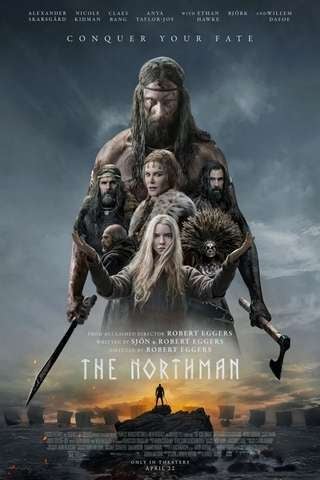
THE NORTHMAN
Directed by Robert Eggers
A young prince vows to avenge his father, the king, who dies at the hands of his own brother. It’s either the plot of Hamlet or The Lion King, depending on how much attention you paid during English class. However, what you may not know is Shakespeare took inspiration from the Nordic myth of Amleth (try rearranging the letters). Brought to the screen by the ever-brilliant Robert Eggers, it’s an unrelenting, utterly furious saga of revenge and family drama. After Amleth’s dad is ambushed, and turned into a human pincushion, by his uncle Fjölnir, who also takes his mother, he flees – taking a mutineer’s nose with him. After some time as part of a Viking clan, he returns some years later when his uncle’s reign is over and he’s been downgraded to ruling over a farm. Disguising himself as a slave, to work for him, with the help of fellow captive Olga he plans to torture, overthrow and slay Fjölnir. In doing so, getting vengeance and fulfilling a prophecy.
I’ve often said that Eggers is the most exciting new voice in contemporary horror – probably followed by Jennifer Kent. His first two features, The Witch and The Lighthouse, were immersive modern masterpieces that showed he wasn’t just an excellent craftsman but a visionary. What’s impressive is how well he has preserved a voice that’s uniquely his in a movie with an almost 100-million-dollar budget. Fears he’d make something safer, bloated and more by the numbers can be cast aside: this isn’t an arty director selling out to a studio. On the contrary, The Northman is among the most ambitious big-budget movies I can think of. And this is despite the director openly saying he didn’t have the final cut (something he also says meant it was more enjoyable than whatever he could have done). It still has all of his usual strengths: period details, rich characters, a musical ear for dialogue, and a truly immersive atmosphere. Simply put, as per his others, it looks and sounds fantastic.
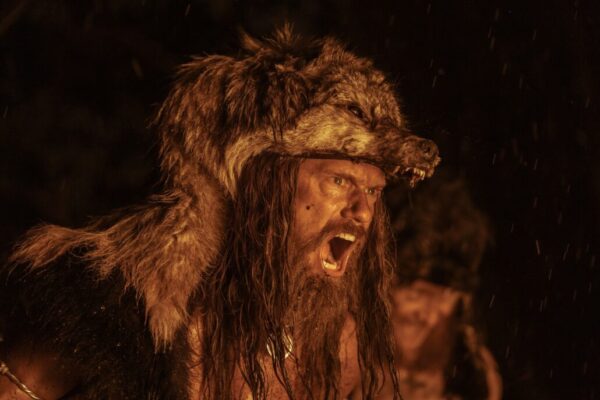
Eggers has a real knack for lighting a scene, and the use of black and white and single shades, combined with his more earthy realist scenes, captures a contrast between the horror of the Vikings and the romantic tales that inspired them. In his earlier films, Eggers was perfectly able to inject moments of surrealism into a historically authentic account. This is much the same but on a bigger scale. It’s never clear how literally we’re meant to take the film’s divine intervention – the important bit is that Amleth is wholly convinced. The highly detailed sets remind us of Eggers’ background in props and while the script is a bit of a language salad, it has his usual moments of beauty, musicality and frankness. The sound design is incredible, too, putting you in the thick of the action. There’s also a top-notch score, composed by Robin Carolan and Sebastian Gainsborough and comprised of traditional instruments. As per last year’s Dune, some cacophonies are almost overwhelming – sheer noise that hits you with the force of the waves that washed away King Canute. It’s the sort of thing you really should experience at the cinema.
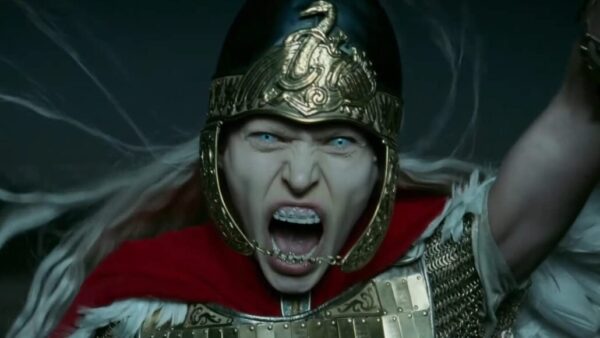
Thematically, Eggers once again returns to deconstructing masculinity. This time it’s pride, violence and a need for revenge at any cost. Films like I Saw The Devil have dealt effectively with the idea that to beat a monster means becoming one. Yet The Northman goes a step further, suggesting it isn’t about individuals but entire communities and social structures built upon ideals of status, glory and divine rights. Narratives that can easily turn a man to obsession. Amleth is no worse than anyone else in this cruel world: he’s a product of it. A boy who grew up trained to unlock his inner wolf (an odd scene involving Willem Dafoe), learning stories about the necessity to spill blood for honour. On paper, he’s perhaps a default protagonist – a handsome, muscular white guy getting righteous revenge for his family. However, what makes him stand out is the absolute anger and animalistic physicality that fuels him: the beast within. I expected it to be grim but was not ready for how dark he gets. Many movies are built around antiheroes, but this one really stretches audience identification.
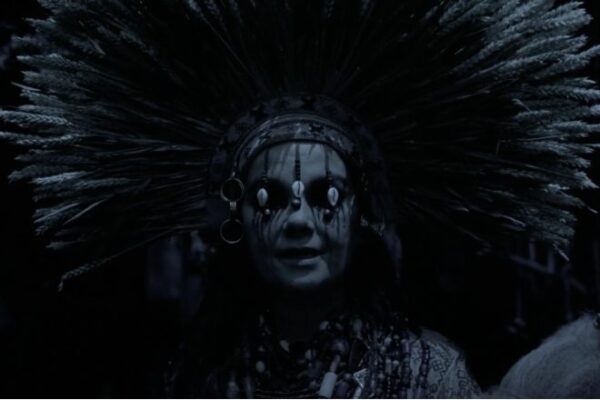
The Northman is less morally grey than a moral vacuum – yet if there’s anything to identify with, it’s the sheer strength of feeling and passion. No matter how self-destructive. Amleth is no hero, but he sure as hell sees himself as one. Sarsgaard is phenomenal, throwing everything he has at the role as he rages, storms and howls through every last scene. We never doubt how dangerous he can be or that he’d stop at nothing to get ‘what was taken’ from him. makes his moments of tenderness all the more rewarding. We witness his eyes soften, and his body eases up during these. The standout is a scene where Amleth learns that his father may not have been the great man he thought, yet rather than let this be a moment of clarity or reflection, he doubles down. He must be, otherwise, his life until this moment has been pointless. He must be to justify killing in his name. And wow there’s a lot of killing here: bodies are smashed, burned and twisted beyond recognition. This has worked hard for a 15 certificate. Men, women, children, and the elderly are all killed in a cold, brutal, matter-of-fact way. It isn’t one of those movies that try to airbrush war or make it fun. And yet as well as being fierce, it’s also surprisingly intimate.
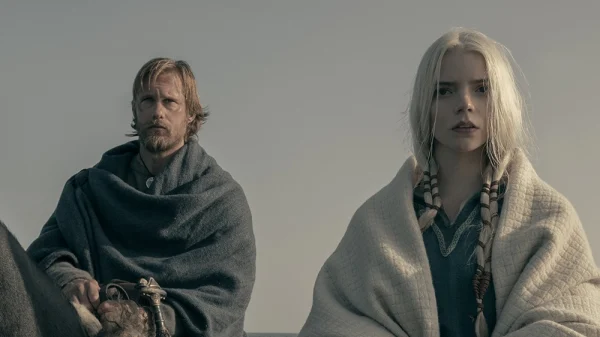
The second half is largely confined to a single location: Fjölnir’s farmstead. Like the family house in The Witch or the titular Lighthouse, it’s a place we get to know well – learning the layout as Amleth stalks his prey. There are still action set-pieces. The first act features a stunning single shot siege of a village, the second a visceral sporting event and, despite echoing a much memed fight scene from decades back, the finale is a beautiful ballet of savagery. Still, those looking for Braveheart style battlefield scenes may be disappointed: The Northman is never about entertainment and spectacle. It’s about how much you can take, then thanking all Odin you weren’t born a thousand years ago. There’s some redemption in the romance with Olga. And while we see limited evidence of her cunning, which she claims can break people (aside from a memorable scene involving menstruation), Anya Taylor-Joy embodies a restrained fury. Then there’s Nicole Kidman. At her worst moments, she sometimes lapses into a slightly camp melodrama, yet she adds depth to her character – showing how war and oppression can take their toll on someone.
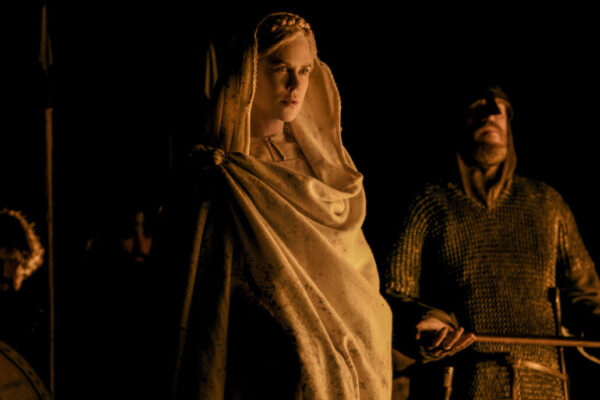
You’ll likely be changed to. It’s hard not to be emotionally affected by The Northman – even if that emotion is anger. Some people will hate it, or not care about the protagonist’s quest. That’s pretty much a given – bits like the Bjork cameo as a seeress could be called pretentious, and likewise the more abstract perspective moments. Others may find it too long and plodding in the midsection. However, I think those who gel with it will emerge from the cinema shaken, deeply moved and in awe – especially if they’ve seen and liked Eggers’ work to date. In a career of so far great movies, it is perhaps his biggest statement as a filmmaker yet. And though I possibly prefer the lowkey homoeroticism and awkwardness of The Lighthouse, this one is even more of a cinematic achievement. Not that it’s necessarily about living up to the first movies per se – this is something completely different. For both Eggers, and recent blockbuster cinema in general.




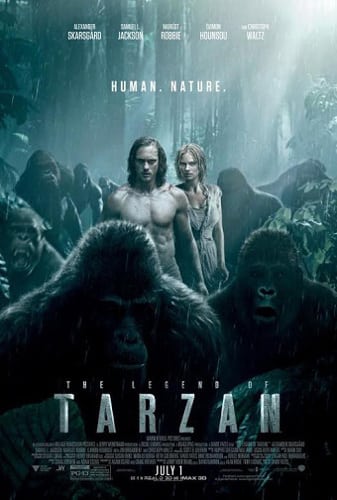

Be the first to comment